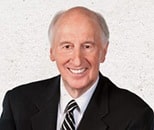“He who believes in Me, the works that I do he will do also; and greater works than these he will do.” – John 14:12
“Lord, help me to be like Jesus! Help me do ‘what Jesus would do’ in my everyday life.”
Has any prayer been mentioned more often than this, at least by sincere disciples of the Savior?
This worthy heart-cry finds expression within the living Church today as many believers pursue “being and acting like Jesus.” Who could question the validity of such a practical and dynamic goal? Nobody, of course! But with this desirable Christian goal in view, let me invite you to take a minute with me. Let me ask you to probe a little deeper than I think the above prayer usually interprets itself—deeper than what, upon careful review, is revealed to actually be a prayer for only one-half of what “being like Jesus” means in New Testament terms. So, if someone is praying to “be like Jesus,” what definition should pastors and leaders be teaching as the appropriate expectation if an answer of biblical proportion is sought? Exactly what is a scriptural definition of “being like and acting like Jesus”?
Every value compelling my ministry has consistently been to help people realize their potential as “people of the Kingdom”—as incarnate expressions of the life of Jesus Himself doing two things: (1) of His living in them and (2) of His ministering through them.
However, a reading of most books that devotionally explore “Christ-likeness” will most commonly convey this quality as essentially referring to the beauty and purity of Jesus’ character, which is not unworthy even though it is incomplete. As a result, “to be like Jesus” is generally presumed by most Christians to be a worthy quest seeking refinement and growth in our personal attitudes, behavior, and ethics—that we would become more unselfish, more loving, and more servant-like.
And, of course, these are valid and biblical goals for any of us—believers in Jesus ought to open to, expect, and be accountable to grow in the virtues of spiritual discipline and moral integrity. They are indeed essential evidences of “Christ-likeness.”
But I have been increasingly moved to urge leaders and believers alike to biblically and passionately develop a fully Spirit-formed life; one not only Christlike in character but also Christlike in ministry—in power, in a functional grace and dynamic expectation when faced with human brokenness or bondage, pain or practical need. To pursue Jesus’ power in my life as well as His purity is to seek the “other half” of Christ-likeness; to round out the fuller dimensions of Christ’s person and works, not only the foundational dimensions of His character, purity, and personal holiness in our lives.
It was fully “in character” for Jesus to do a great deal more than live in holiness, righteousness, and purity. It was just as natural for Him to function in the gifts and power of the Holy Spirit. A comparison of I Corinthians 12’s “gifts of the Holy Spirit” with Jesus’ life will demonstrate that virtually all of these were expressed in His ministry, just as a comparison of Galatians 5’s “fruit of the Holy Spirit” may be clearly seen in His living and relationships. His whole life was shaped by and operated in the Spirit’s purity and power—holiness and dynamic.
Broadening our definition of “Christ-likeness” is not to reduce either the values of manifesting the fruit of the Spirit (character) or functioning in the gifts of the Spirit (charismata—the Greek word for the Spirit’s gifts). But it is to call today’s disciple of Jesus to expect a full-dimensioned development of Christ to be formed in them.
How can this be?
That’s the very question Mary asked the angel Gabriel when he told her she was a candidate for a miracle that would introduce (1) the Messiah into her world and (2) the possibility for the “increase of His government” to advance relentlessly (Luke 1:26-38). The answer she received is the same today: “The Holy Spirit will come upon you.”
The Holy Spirit’s overflow and power is still the answer to experiencing full-dimensioned, miracle-manifesting, and character-purifying “Christ-likeness.” It opens a “Christ in you” potential for every believer, as members of His Body receive the Holy Spirit’s workings toward a “forming” of the “fullness of Christ” in us. It’s a process—a growth in grace and faith that unlocks the rich possibilities described in II Corinthians 3:18, where the promise is offered to each of us, that we may become “transformed into the same image [Christ’s] from glory to glory, just as by the Spirit of the Lord.” That’s what being “Spirit-formed” is about—it’s the continuum of having been first, Spirit-born in Christ, and second, being Spirit-filled by Christ.
The call to be “Spirit-formed” is the New Testament’s call to Christ-likeness—the call I urge you to join me in answering. And to do so, we need to begin with a full-orbed definition that “Christ-likeness” is a call to “Christ’s fullness.” It’s His call that we embrace and pursue this fullness of Himself as a biblical and practical prospect for every truly “seeking” believer today. To pursue less is to succumb to “a form of godliness” that denies responsibility for functioning in “the power thereof.”
So, let’s open fully to our Lord’s vision for His Church. He’s still calling disciples to expect to “do the works that I do.” With that call, He is ready to enable leaders to help shape disciples who become “Spirit-formed”—present-day, incarnate expressions of Jesus’ own life of beauty in character and power in ministry. It’s the only way there is ever likely to be a fully functioning Church reaching in life and power, holiness and deliverance to a world filled with need—need that only can be answered by members of Christ’s Body who are filled with His Spirit—multiplying and replicating His ministry, as well as His beauty and character.
Copyright 2013 by Jack W. Hayford, Jack Hayford Ministries
Our gift of this article by Pastor Jack Hayford is made possible by your gracious support of the ministry. Partner with us online or call toll-free 1-800-776-8180 (within the U.S.).





